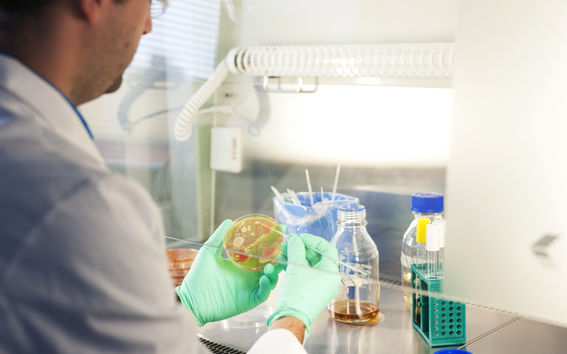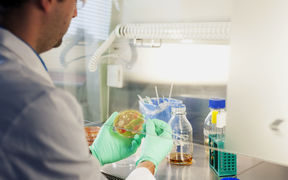Description
Biotechnological solutions are becoming more and more important in the chemical, fuel, material, food, and pharmaceutical industries – just to name a few. This field needs new experts to develop new materials, food solutions, bio-based chemicals, advanced medicines like vaccines, and new fuel technologies.
This programme will teach you to do just that.
Biotechnology takes an engineering approach to developing biological components, materials and processes into applications, or using biological principles to design biomimetics or biomanufacturing processes. This programme covers the entire development chain – from initial concepts to bioengineering and implementation of biotechnological production.
Biotechnology is one of today’s most dynamic and disruptive fields, with innovations in sequencing, genome editing, imaging, bioanalytics and machine learning driving rapid growth.
By the time you graduate, you will have:
● Strong multidisciplinary knowledge in cellular and molecular engineering and industrial biotechnology. You will build a solid foundation in the fundamentals of biotechnology, along with its engineering and technological dimensions. You will develop in-depth knowledge of biological phenomena at the molecular and cellular levels, including cell physiology. By graduation, you’ll be able to modify and reprogram selected molecules or biological processes to enhance product properties or optimise production methods.
● Hands-on experience. You will become proficient in the essential laboratory methods and techniques used across the entire biotechnology development chain – from biomolecule design, strain design and genetic engineering to the development of production processes.
● Analytical and simulation skills. You’ll learn to design biomolecules and strains and perform modelling and analysis at the micro and macromolecular level. You will be able to interpret complex data and apply analytical and critical thinking to identify and eliminate potential sources of errors.
● Collaboration and team working abilities. Graduates are goal-oriented, systematic, and responsible professionals ready to meet the needs of this quickly developing field. You will be able to work effectively as a part of diverse teams and with experts across disciplines.
● Communication and argumentation skills. You will be prepared to contribute to teams and communicate your ideas clearly using scientifically justified arguments. You will be able to tailor your message to different audiences, defend your viewpoints with scientifically sound arguments, and engage in constructive debate.
In Finland and around the world, the biotechnology sector offers exciting opportunities for skilled professionals ready to tackle global challenges like sustainability, climate change and food security. You'll graduate prepared for a meaningful career in industrial R&D, engineering or research.











